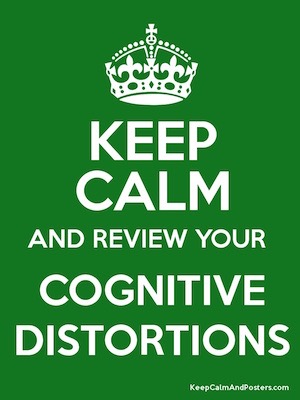GroenLinks: "De leden in vergadering bijeen op 18 augustus 2015
Constateert
Dat Iwan Leeuwin niet bereid is de zetel terug te geven aan GroenLinks, dat hij hiermee de partij op onredelijke wijze benadeelt.
Besluit
Dat de afdeling aan het partijbestuur zal verzoeken om een procedure tot royement te starten conform artikel 5 en 21 van de statuten van GroenLinks.
Het bestuur zal dan ook conform deze motie een verzoek tot royement van de heer Leeuwin bij het landelijk partijbestuur indienen.”
Iwan Leeuwin wordt de zwartepiet toegespeeld, zou men dan kunnen zeggen. Maar kijk uit. Kunnen en mogen we dat wel zeggen? Is dat niet racistisch? De uitdrukking ‘iemand de zwartepiet toespelen’ komt uit het kaartspel. Er is geen enkele reden om daar iets racistisch in te zien. Maar sommigen zullen vinden van wel.
Iwan Leeuwin vond de pop die kinderen maakten ter ere van Nelson Mandela teveel op Zwarte Piet lijken. Poeh hè! Leeuwin vindt ook dat de bedrijfsnaam Picnic racistisch is, want zou bedacht zijn door de Ku Klux Klan. Pooh Bah!
Glamora - Maarten van Rossem: ‘Ik moet zeggen dat ik zowel de voorstanders als de tegenstanders van Piet precies even strontvervelend vind. Het zijn allebei irritante vormen van politieke correctheid. Ik ben opgegroeid met Zwarte Piet en heb ik ooit gedacht dat die er is omdat we tegen de negers zijn? Nee, helemaal niet. Pas als je hoort dat dit zo is, begin je te discrimineren. In die zin creëert politieke correctheid zijn eigen discriminatie.’
In het laatste nummer van The Atlantic staat een interessant artikel over politieke correctheid en de manier waarop het vaak misgaat. Op Amerikaanse scholen ontstaat een beweging die alles wil weren wat maar mogelijk als beledigend opgevat zou kunnen worden.

TheAtlantic: "The Coddling of the American Mind
In the name of emotional well-being, college students are increasingly demanding protection from words and ideas they don’t like. Here’s why that’s disastrous for education—and mental health.
The press has typically described these developments as a resurgence of political correctness. That’s partly right, although there are important differences between what’s happening now and what happened in the 1980s and ’90s. That movement sought to restrict speech (specifically hate speech aimed at marginalized groups), but it also challenged the literary, philosophical, and historical canon, seeking to widen it by including more-diverse perspectives. The current movement is largely about emotional well-being. More than the last, it presumes an extraordinary fragility of the collegiate psyche, and therefore elevates the goal of protecting students from psychological harm.
Microaggressions are small actions or word choices that seem on their face to have no malicious intent but that are thought of as a kind of violence nonetheless.
The ultimate aim, it seems, is to turn campuses into “safe spaces” where young adults are shielded from words and ideas that make some uncomfortable. And more than the last, this movement seeks to punish anyone who interferes with that aim, even accidentally. You might call this impulse vindictive protectiveness. It is creating a culture in which everyone must think twice before speaking up, lest they face charges of insensitivity, aggression, or worse.
Attempts to shield students from words, ideas, and people that might cause them emotional discomfort are bad for the students. They are bad for the workplace, which will be mired in unending litigation if student expectations of safety are carried forward. And they are bad for American democracy, which is already paralyzed by worsening partisanship. When the ideas, values, and speech of the other side are seen not just as wrong but as willfully aggressive toward innocent victims, it is hard to imagine the kind of mutual respect, negotiation, and compromise that are needed to make politics a positive-sum game.
Why not teach incoming students how to practice cognitive behavioral therapy? Given high and rising rates of mental illness, this simple step would be among the most humane and supportive things a university could do.
Common Cognitive Distortions
1. Mind reading. You assume that you know what people think without having sufficient evidence of their thoughts.
2. Fortune-telling. You predict the future negatively: things will get worse, or there is danger ahead.
3. Catastrophizing. You believe that what has happened or will happen will be so awful and unbearable that you won’t be able to stand it.
4. Labeling. You assign global negative traits to yourself and others.
5. Discounting positives. You claim that the positive things you or others do are trivial.
6. Negative filtering. You focus almost exclusively on the negatives and seldom notice the positives.
7. Overgeneralizing. You perceive a global pattern of negatives on the basis of a single incident.
8. Dichotomous thinking. You view events or people in all-or-nothing terms.
9. Blaming. You focus on the other person as the source of your negative feelings, and you refuse to take responsibility for changing yourself.
10. What if? You keep asking a series of questions about “what if” something happens, and you fail to be satisfied with any of the answers.
11. Emotional reasoning. You let your feelings guide your interpretation of reality.
12. Inability to disconfirm. You reject any evidence or arguments that might contradict your negative thoughts."
Iwan Leeuwin en iedereen in Zuidoost moet bovenstaand artikel maar eens lezen, compleet. Daar staan heel zinnige dingen in.
Hardstikke goed blad, The Atlantic. Je kunt je erop abonneren, maar je kunt zowat alle artikelen ook gratis op internet lezen. Ook digitaal te abonneren voor alle raadsleden en bestuurscommissieleden voor de luttele som van 21,99 $ of omgerekend volgens de bijzondere valutakoers van Apple 21,99 €.
